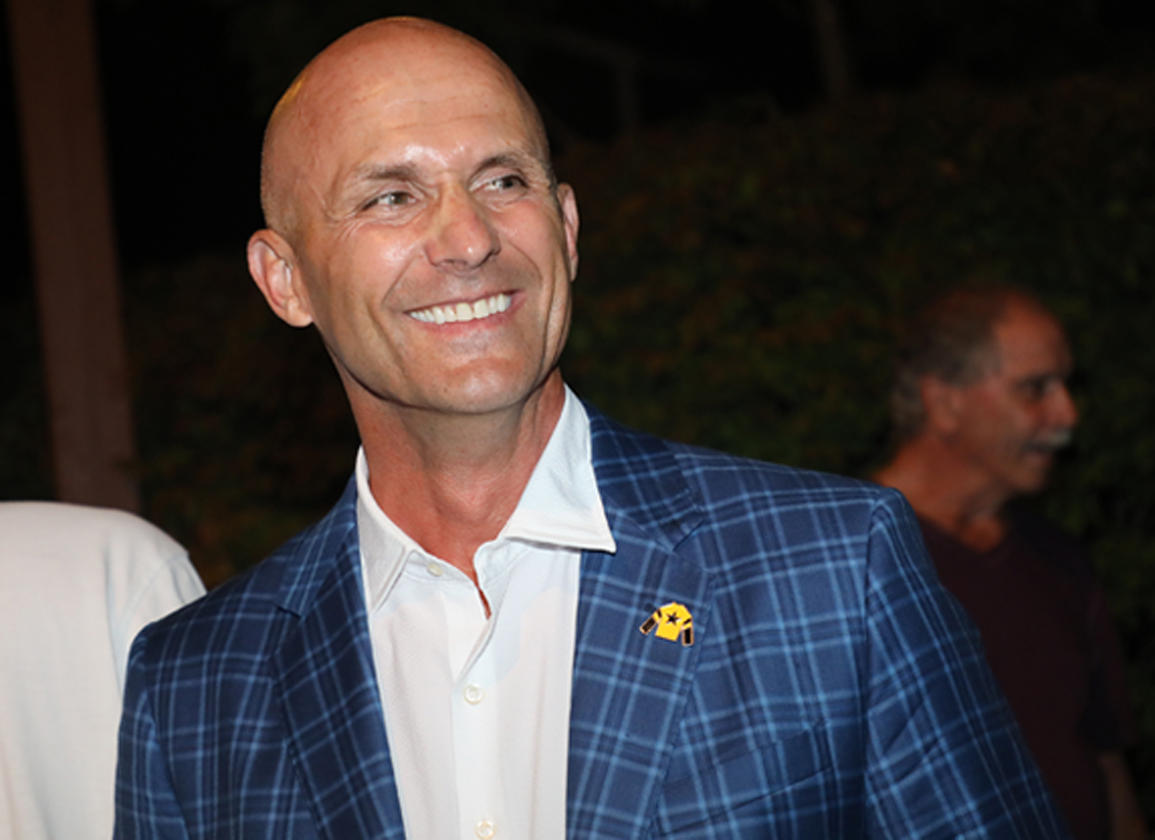
Wednesday, July 7, 2021 at 6:56 pm |
Back to: Top News
Updated: July 7, 2021 at 7:00 pm
Terry Finley | Fasig-Tipton
Represented by undefeated ‘TDN Rising Star’ First Captain (Curlin) this past weekend when the chestnut captured the GIII Dwyer S. at Belmont, West Point Thoroughbreds’ CEO Terry Finley joined the TDN Writers’ Room presented by Keeneland Wednesday morning. Calling in via Zoom as the Green Group Guest of the Week, Finley talked about the next steps for West Point’s prized 3-year-old, the growing purchasing power of partnerships across racing, owners’ responsibility in cleaning up the sport and more.
“He’s probably going to have to take another step forward, but at least we’re in a spot in the middle of his 3-year-old year where he can take that step forward,” Finley said of three-for-three First Captain, a $1.5-million yearling buy owned in partnership with Siena Farm, Bobby Flay and Woodford Racing. “I think he’s right on the cusp and obviously so far hasn’t done a whole lot wrong. He’s been brought along by a pretty good trainer in the likes of Shug McGaughey and his team. So we’re excited. And the thought of going to Saratoga—we’ve never gone to Saratoga with the prospect of getting to the Travers. So that in and of itself is really, really exciting for all the partners and for the West Point team and everybody associated with us.”
The conversation turned to racing’s ongoing and developing efforts for reform, and Finley was asked what level of responsibility lies with owners when it comes to employing trainers who are taking an edge.
“We have a part to play,” he said. “I’m not accepting of the guys who are winning at 30% and have made a lot of money and gotten a lot of pictures taken, then their trainer gets popped and they’re like, ‘Oh, I didn’t know.’ I just tell owners out there, if your trainer spent 20 years at 14% or 17% and now they’re at 29%, you should be asking questions. You know what you’ve done. There aren’t enough variables in training a horse to move an operation from 17% to 29%. So at that very basic level, you have to ask questions and raise an eyebrow. Everybody can do their part. And I think we’re getting to the point where people and major organizations in the industry have stood up and said, ‘No more.’”
Elsewhere in the show, which is also sponsored by West Point Thoroughbreds, the Minnesota Racehorse Engagement Project and Legacy Bloodstock, the writers broke down an action-packed holiday weekend of racing, discussed the two-year suspension for Parx trainer Richard Vega and celebrated their upcoming return to the Writers’ Room studio. Click here to watch the podcast; click here for the audio-only version or find it on Apple Podcasts or Spotify.
Not a subscriber? Click here to sign up for the daily PDF or alerts.
